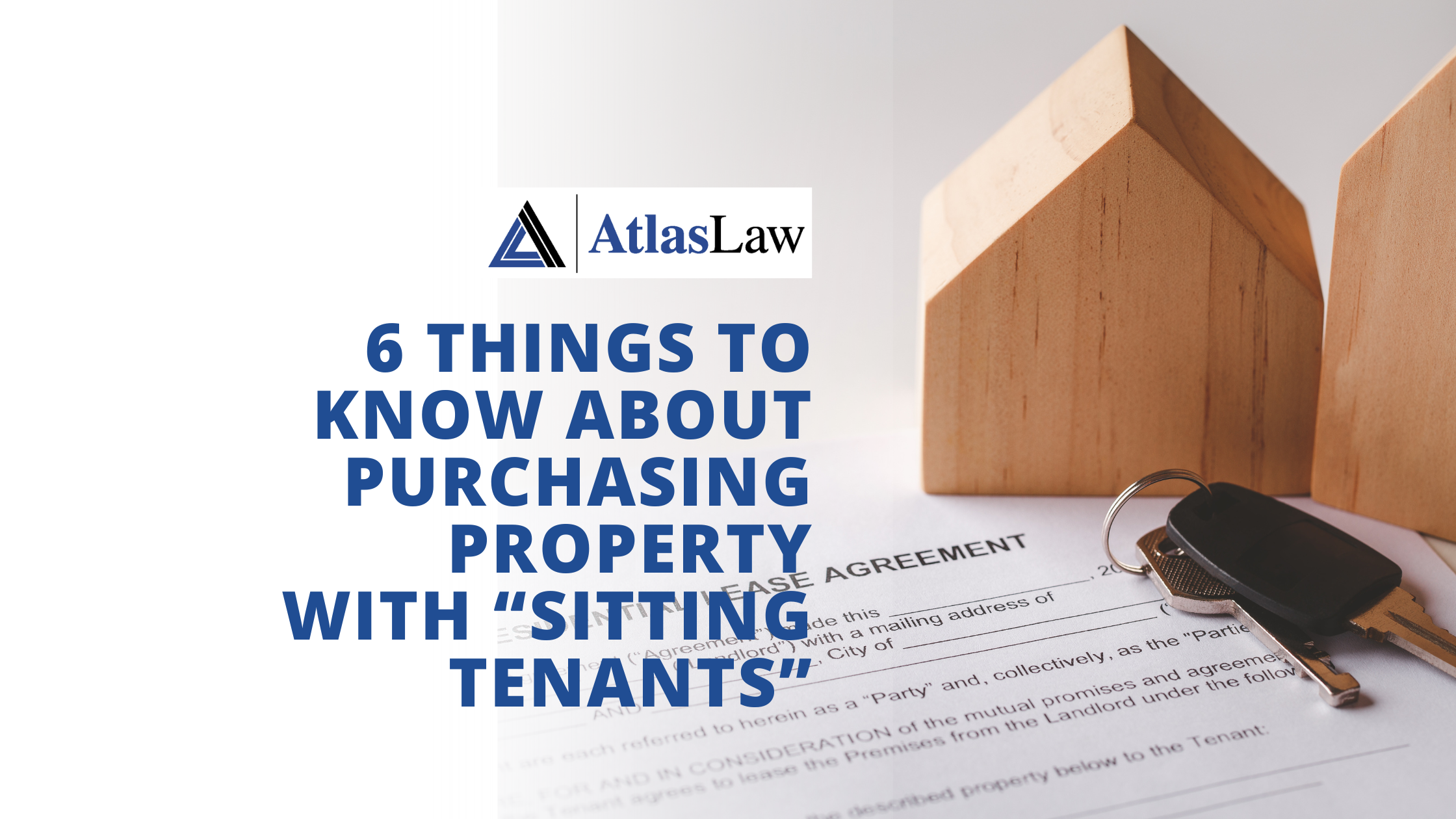6 Things to Know About Purchasing Property with “Sitting Tenants”

In Florida, purchasing a property that already houses tenants, known as a “tenanted property,” is a unique investment opportunity with its own set of rules and responsibilities. This situation arises when an investor or homeowner buys a property where lease agreements are already in place, meaning that the tenants have the right to continue living in the property under the terms of their existing leases.
For the new property owner, this means stepping into the role of the landlord with obligations and rights that are governed by Florida’s specific landlord-tenant laws. Understanding the laws, including how lease agreements are transferred, handling security deposits, respecting tenant rights, and eviction, is crucial for anyone considering such an investment. This type of purchase can offer immediate rental income and save on the costs of finding new tenants, but it requires a thorough understanding of your legal responsibilities as a landlord. Here are some things to consider:
- Lease Agreements Carry Over: The existing lease agreements with tenants are binding upon the new owner. This means that all terms, including rent amount, deposit details, lease duration, and any other conditions agreed upon by the previous landlord and the tenants, remain in effect until the lease expires.
- Security Deposits: Florida law requires that any security deposits held by the previous owner must be transferred to the new owner. The new landlord is then responsible for holding these deposits according to Florida statutes, which include placing the deposit in a Florida banking institution, posting a surety bond for the amount of the deposit, or insuring the deposit with a Florida insurance company.
- Tenant Rights: Tenants in Florida have rights protected under state law, including the right to a habitable living environment, the right to privacy, and protection against retaliatory eviction. As the new property owner, you must respect these rights and follow proper legal procedures for any property access, maintenance, or eviction processes.
- Notice of Ownership Change: While not specifically mandated by Florida law, it’s considered good practice to notify tenants of the change in ownership. This notification should include information on where to send rent payments and who will manage the property moving forward, along with any relevant contact information.
- Eviction Rules: If you plan to make changes to the tenancy post-purchase, such as not renewing a lease or evicting a tenant for cause, you must adhere to Florida’s eviction laws. This includes providing proper notice as required by the lease and state law and following the judicial process for eviction if the tenant does not comply.
- Local Regulations: Some Florida municipalities have additional ordinances affecting rental properties, such as rental license requirements, inspections, or specific tenant protections. It’s important to familiarize yourself with any local regulations that apply to your newly acquired property.
Investing Carefully
Purchasing a property with sitting tenants in Florida can be a valuable investment, especially if the property generates steady rental income. However, it’s crucial to understand your responsibilities as a landlord under Florida law to ensure a smooth transition and maintain a positive relationship with your tenants. Consulting with a legal professional experienced in Florida real estate and landlord-tenant law can provide valuable guidance and help protect your investment.
At Atlas Law, we help property owners just like you through the ups and downs of owning investment property and landlord-tenant laws. We’re passionate about ensuring your rights and investments are protected. Contact us today to schedule a consultation by calling 813.241.8269 and make sure your tenanted property venture is legally sound and financially rewarding.


 Business owners play a balancing act between establishing their companies while limiting their personal liability. This is why people can choose between different types of entities. Landlords are no different and should take the necessary steps to limit their exposure to risk and lawsuits.
Business owners play a balancing act between establishing their companies while limiting their personal liability. This is why people can choose between different types of entities. Landlords are no different and should take the necessary steps to limit their exposure to risk and lawsuits.  Whether you are a landlord or a tenant, it is essential to know the rights and responsibilities of tenants as outlined by Florida law. Even in the absence of a lease, these laws will serve in its place.
Whether you are a landlord or a tenant, it is essential to know the rights and responsibilities of tenants as outlined by Florida law. Even in the absence of a lease, these laws will serve in its place. 



